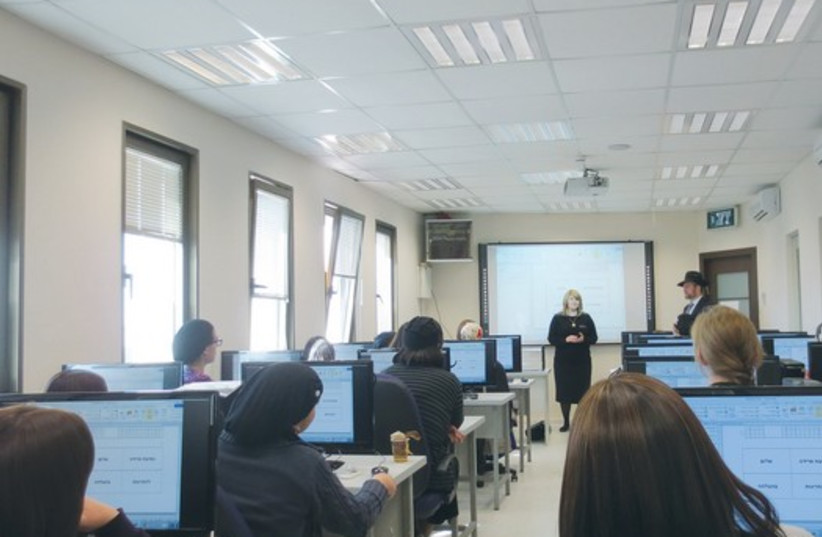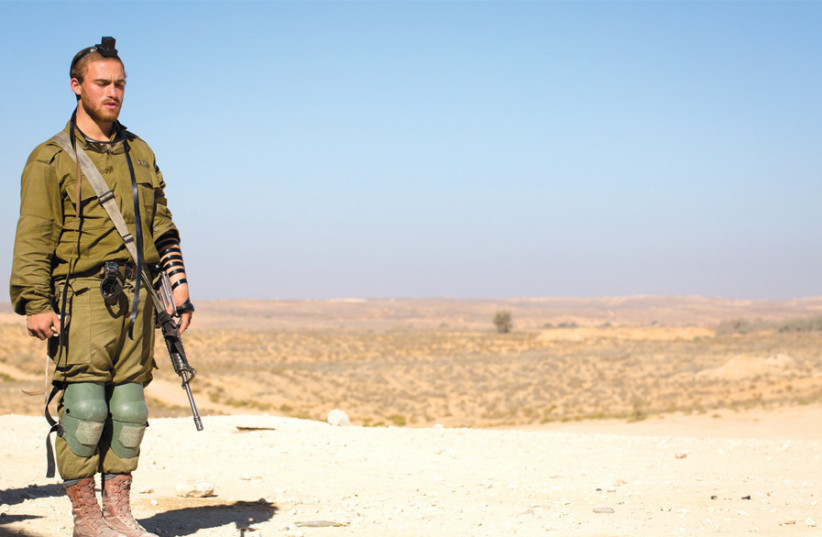In January, Israel made history and finally, after years of disgrace, increased the salaries of IDF soldiers. It was a crown achievement of the outgoing government, one that had been spoken about for years but was never done.
At the cost of NIS 900 million, Israel’s soldiers – the young men and women who give time, energy and sometimes lives for their country – were finally starting to be paid something a bit more respectable. It is still far from being enough in a country as wealthy as Israel, where there is a booming high-tech industry and almost endless natural gas. Nevertheless, it was something.
According to the plan, combat soldiers began to be paid NIS 2,400 per month and that will later increase to NIS 3,000, while non-combat soldiers began to receive around NIS 1,800 a month, instead of the approximately NIS 1,200 they were receiving before.
What the soldiers who started to receive this money didn’t know at the time was that they had an easier alternative. They didn’t have to go to the IDF to get paid close to NIS 2,000. Instead, they could have become an avreich, as the ultra-Orthodox call their yeshiva students who sit and learn, and if they waited just a year, they would soon receive the same amount.
If there is anything that is insulting about the incoming government that Benjamin Netanyahu is working to establish, it is the decision to double the government subsidy to Haredi yeshiva students. This is taxpayer money, almost exclusively funded by families whose children serve in the IDF. Having IDF-serving families fund non-serving families is an insult to these soldiers.

The real price at hand
I don’t know where Goldknopf has been for the last 75 years since Israel was established as a state, but he would do himself a favor to visit the hallowed ground at the Mount Herzl cemetery and walk along the rows of military tombstones. He might learn a thing or two about the difficulty soldiers encounter on the frontlines and the price some are forced to pay.
It’s a bit different than what happens in a yeshiva where it is infrequent – to say the least – for someone to die battling out a sugya (a piece of Talmud) in the tractate of Baba Kama.
This is not a column against Haredim, it is the opposite. I am writing this because the Haredim need help and the country’s success in providing that assistance will be key to Israel’s continued sustainability and success.
THE NUMBERS tell the entire story. Currently, the Haredim make up about 1.2 million of Israel’s citizens, around 13% of the country’s population. With a high birthrate – thanks to Haredi mothers, the Jewish fertility rate has surpassed the Arab rate – the ultra-Orthodox are projected to grow to be 30% of the population by around 2060, in just over 35 years.
On its own, there is nothing wrong with this. The problem is in the following statistic: According to the Bank of Israel (BoI), approximately 75% of Haredi women work (close to the national average of 85%), but only 50% of men work.
When you dive a bit deeper into the 50%, you see that only a third of the men work full-time. The rest are only part-time and most work in menial jobs with barely any (3%) in the tech sector, the economy’s primary engine for growth.
One more statistic from the BoI: A Haredi family pays on average NIS 1,500 in monthly income tax. A non-Haredi family – secular and national religious – pays an average of NIS 4,500.
Think about that for a moment. The Haredi household has more people than a non-Haredi household – sometimes double. Yet, it pays a third in taxes.
How does this make sense?
Imagine that in 30 years, the situation doesn’t change. Still, 50% of men work and the average monthly income tax remains the same. What will happen to Israel? How will this country survive? The situation is dire. This – not Iran,
Hezbollah or Hamas – is the greatest challenge that the country will face in the years to come.
Can anything be done? Of course. Firstly, the Haredim need to understand that the state and the institutions that want to integrate them are not against them. When outgoing Communications Minister Yoaz Hendel tried to reform the Kosher phone market, it wasn’t to turn Haredim into secular Israelis, as some UTJ politicians claimed, it was to help bring them into modern society.
Efforts to draft the Haredim into the IDF are not so they don’t pray three times a day or learn. It is so they can help carry the national burden and can later have an easier time integrating into general society.
I am sure that everyone reading this column knows a Jew who is not Haredi but takes time out of her or his day – every day – to pray, study and do chesed (acts of loving kindness). They can, too.
There are three steps that can be taken almost immediately that can help the situation.
THE FIRST is painful but is needed: Israel needs to give up on drafting the Haredim into the IDF. It is unfair and creates a stark inequality but it is the right thing to do.
Do Haredim need to draft in the future?
Thankfully, the country has enough soldiers without needing to draft the Haredim, as has been shown over the last 75 years. I recognize the danger in doing this since such a move could turn secular and national-religious youth off from serving in uniform.
On the other hand, we don’t really have a choice. A Haredi child born today is not going into the IDF in 18 years. It is time we come to terms with that stark fact.
I remember 15 years ago, when Eliezer Shkedi, the commander of the Air Force at the time, started a program to draft a small group of Haredim into the IAF. Shkedi went one day to meet the new recruits and while they knew no English, math or computers, he was impressed by their analytical skills, honed from years of studying complicated Talmudic texts. When they finally started studying math, they picked it up in almost no time.
Now imagine that 20% more of Haredi men enter the workforce. Think what that pool of talent could do to propel Israel’s economy forward.
The next step needed is to sever the connection between the ability to work and military service. If a Haredi man wants to not serve in the IDF and not study in yeshiva, let him go work. Again, this is not fair and other 18-year-olds will wonder why they cannot do the same, but when considering where Haredi men are needed more, there is little question: we need them working.
And finally, we need new Haredi politicians and not people like Goldknopf, who sadly is only motivated by power and survival. If he cared for his constituents, he wouldn’t ask to double the government subsidies for averichim.
Instead, if Goldknopf really cared about Haredi households, he would demand that Netanyahu set aside billions of shekels to educate, train and get Haredim working in jobs that respect them. That is what is needed.
And if Netanyahu really cared about the future of the country’s economy, he would not have promised to fund all schools – even those that don’t teach a core curriculum of math, English and science – as he did ahead of the election.
If there is anyone who knows how important this is, it is Netanyahu who as finance minister in 2003 cut the subsidies to the ultra-Orthodox as part of a national effort at the time to get them into the workforce.
The combination of politics, fear and anger is preventing the Haredim from being what they can be: a sector of growth and success that can drive Israel forward in ways we cannot yet imagine.


